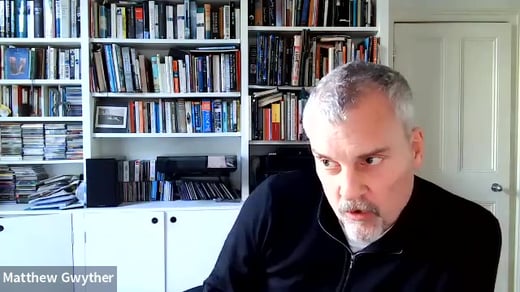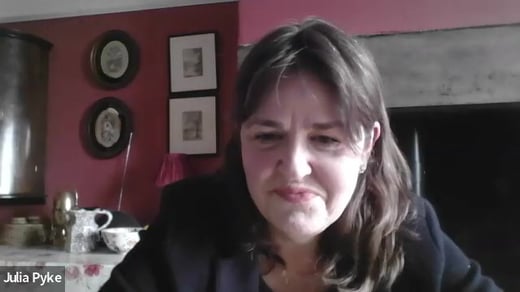Nuclear Power and The Road to Net-Zero - An Interview with Julia Pyke
In case you missed it, we recently interviewed Julia Pyke, Joint Managing Director of Sizewell C, as part of our Jericho Conversations series.
With over 15 years of experience advising infrastructure and energy projects around the world, Julia joined EDF Energy in July 2017 to focus on Hinkley Point C, Sizewell C, Bradwell B and the decommissioning of advanced gas-cooled reactors.
Before her present role, Julia led a cross-practice team advising on power projects as Partner and Head of Power and Renewables for the UK, US & Europe at Herbert Smith Freehills LLP, focusing on defence, nuclear decommissioning and transport projects. Julia is now working with Government to identify an innovative way for Sizewell C to be funded at best value to electricity consumers and potential investors. She’s unusual as a female leader in a heavily male-dominated industry.
Matthew Gwyther, Partner at Jericho spoke with Julia about the role of nuclear energy on the path to Net-Zero, the reasons why major, beneficial infrastructure projects in the UK take so long to achieve, the sometimes strained relationship between business and government and women in Nuclear and STEM.
Thank you for joining us (if you did), and sorry you missed it (if you didn’t!). It was a great conversation. Below we’ve captured some of the best bits from the webinar.
Why is nuclear going to be critical to get us to Net-Zero by 2035?
“It’s geography dependent. If you look at ‘Electricity Map’ it has real-time data for the carbon generated by different countries and what it shows is that if you’re a country that has geothermal or sufficient hydro then you can have consistently green energy without nuclear. But, if like the UK, you’re a country which doesn’t have economically significant geothermal and doesn’t have huge opportunities for hydro then the countries are green where they have nuclear.”“It shows you very starkly that you can have very pro-renewables policies, like for example Germany, and yet maintain very high carbon content in your electricity production because you’re using fossil fuels to fill in when the winds not blowing.”
“Nuclear is part of the solution and a necessary part of the solutionin some countries, and the UK is one of those countries”.
“Nothing I say is anything other than very supportive of a huge expansion of renewables, we want to work with renewables. What nuclear is there to do is to provide baseload and to fill in for when the winds not blowing and the suns not shining”.
What’s happened in recent years regarding public attitudes towards nuclear?
“It’s really generational. I think many young people are focused on finding a solution and nuclear has some attractive features such as very low land take. They’re not growing up with the same set of attitudes towards nuclear which many people before had – being tribally anti became associated with a whole set of views. I became pro-nuclear once I understood how hard it is to achieve low-carbon electricity without it and the fact that it’s a very good and very safe industry”.
“Until probably the last five years, the nuclear industry hasn’t really taken enough care of helping the public understand all of its good qualities and benefits and it’s taken something like the energy price crisis to get people to re-look at it and see the advantages it has”.
“All ways of making electricity have disadvantages, I noticed the other day that WWF had come out against hydro for example. We want our electricity to be a mix that works optimally for the environment and consumers”.
Why do major infrastructure projects in the UK take such a long time and is it reflective of the relationship between business and government here in the UK?
“There’s a very interesting piece of work studying the Channel tunnel, why did it take so long? Britain is a society perceived to be small and crowded and people are concerned about any building in their locality. We have a system which is both very democratic and very devolved, a lot of decisions are devolved to a lot of agencies".
“I’m in no way arguing for something like a French system in the UK, what we need to do as a society is find the right balance. I think parliament should consider this balance as a matter of urgency, because ultimately whatever the funding mechanism it will all be charged to the consumer in one way or another”.
“There are an awful lot of devolved bodies and something needs to happen to raise thinking back up from a narrow duty to a water consumer or an electricity consumer and remember that we are all part of a societyand all of these things have to work together”.
If you take a topic like the sufficiency of water in Suffolk, climate change is making water less available to the point where the water companies are worried to a degree about growth in the area because they aren’t sure they’ll be able to support the water needs. At the same time, Suffolk is being asked to bare a very significant proportion of the nation’s low-carbon electricity infrastructure. You might think these things will work in harmony but Ofwat and Ofgem have no duty to work together, they have a separate duty to their own consumers to reduce bills and nothing cuts across the top and says look they’re the same consumer so why isn’t there a focus on making the system work as a whole?”
Did the government's ambition for more Nuclear Surprise you?
“No, I think it’s all based on detailed modelling and with a government target for 24GW of nuclear, for context Hinkley and Sizewell will be 3.2GW each – electricity for 6-7% of the population each, Sizewell B provides about 3% of the nations energy”.


For those living in East Anglia, what are the downsides to Sizewell C?
“They are the downsides associated with any large infrastructure project and we don’t pretend they won’t exist. There will be traffic and there will be a period where there is disruptive construction – noise, light, and everything that comes with doing a big building project. We are acutely conscious of that"
"The only reason we can have a social licence to build is that the downsides are offset by the upsides but of course, they’re not always offset for the same people"
"It’s important to recognise that 61% of people in the local area are supportive, 24% opposed with some neutrals in the middle”.
“There is enormous potential for levelling up. If you think about further education and skills, we are requiring our supply chain to provide time for people to lecture in colleges to help kids skill up, get on a skills ladder and career ladder and we offer great jobs to people. This industry is very good at that”.
“We can also use our purchasing power properly. We can work with, for example, WildEast who want to build land corridors for nature and we can require our Suffolk supply chain to sign up with WildEast and make land available for nature. I would really encourage those locally who oppose the project actively to speak to us, we are very keen to hear people’s ideas on how we can make it happen better”.
Why are there so few women in nuclear?
“Currently Sizewell has over 40% women in its employment mix and as we employ more and more technical engineers we will find it very difficult to maintain those proportions because of the number of women who do engineering in UK universities”.
“We can maintain a better proportion in future though, I think young people are quite mission focused and nuclear is a good fit for that... whether its to make low carbon electricity or it's focused on levelling up. I think we will maintain a better proportion of women in the industry”.
“In terms of why women don’t go into STEM that’s a much more complicated question. It's probably in part to do with the quality of teaching in some schools, the number of qualified teachers in those subjects who are encouraging people to go into it”.
"And let's not write off the important of the Arts here too!".
“I think that if you want to persuade people to accept the necessary compromises of moving to a Net-Zero compliant society then you need people who understand people and you need people who understand stuff".
"The big problem we have is not whether there is technology available to achieve Net-Zero but what we haven’t done is persuade people. The nuclear industry needs more people who are people focused and I think that will be true for society as a whole”.
***
About #JerichoConversations
Jericho Conversations is one of a number of initiatives that spontaneously emerged during the first COVID lockdown – part of a determination to use moments of crisis to pivot towards a better, fairer, more equitable and sustainable future for all. By popular demand, we have reignited the series to help find surprising and refreshing solutions and insights into a world in constant flux. Each conversation – led by an expert speaker – is designed to keep Jericho communities engaged and thinking about “what comes next?” for business and society.

